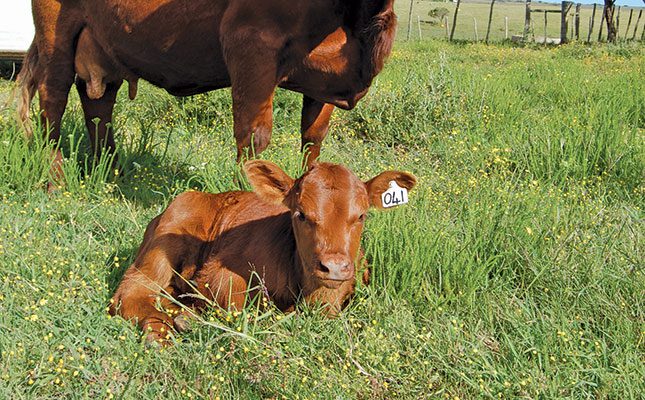
Calves, pigs, sheep, goats, horses, and humans are born with immature immune systems that take weeks to develop. This means they must get passive immunity from their mothers’ colostrum, which contains vital antibodies in the form of immunoglobulins, primarily immunoglobulin G (IgG).
These antibodies help fight off disease in the first weeks of life, while the active immune system is still developing. Without the antibodies from colostrum, newborns have no protection against disease threats.
The first 24 hours of life, particularly the first two, are critical for the absorption of colostrum and its antibodies, which pass through the permeable gut wall directly into the bloodstream. After this period, the spaces in the gut wall close, and no further direct absorption can occur.
A blood test taken in the first 24 to 48 hours after birth can show IgG levels in calves. Low IgG levels indicate low-quality or no colostrum and can lead to failure of passive transfer, resulting in long-term negative effects on the animal’s health and productivity.
By far, the biggest problem in intensive calf-rearing systems is scours, or diarrhoea, which accounts for 50% of illnesses in pre-weaned calves. Pathogens infecting the gastrointestinal tract diminish the calf’s ability to absorb nutrients and affect gut development.
Anyone who has reared young calves knows how difficult it is to manage scours in calf pens, and many simply cannot prevent high calf mortality.
Egg yolk antibodies
There has been a recent renewed interest in egg yolk antibodies or immunoglobulin yolk (IgY). These antibodies are described as a management tool to help boost antibody levels in young animals and prevent illness.
IgY is obtained from the yolks of eggs laid by hens that have been vaccinated with antibodies specific to various pathogens. The hens develops antibodies against pathogens they are exposed to, whether or not they are relevant to chickens.
Powdered egg yolk from the eggs of vaccinated hens may be added to cows’ milk or milk replacer and fed to calves to help them mount a decent immune response against opportunistic pathogens.
Supporting sick calves
IgY also supports the animal when it is sick. Feeding IgY to a scouring calf at every meal boosts its antibody levels, aiding gut health, reducing the severity of the illness, and shortening the animal’s recovery time.
Trials have shown that IgY helps fight pathogens that cause scouring, including rotavirus, coronavirus, E. coli, Salmonella, and cryptosporidiosis.
When used in combination, IgG and IgY can reduce illness and thus lower antibiotic use in newborn livestock. This is a key benefit, as growing concerns over drug resistance are putting more pressure on the sector to cut back on antibiotics.
Scientists have experimented with vaccinating hens against multiple strains of pathogens or hyperimmunising them, and IgY can be tailored to overcome individual farm challenges.
Production advances
Modern production technology means IgY can now be manufactured at a greater scale than ever before, providing potential customers with cost benefits.
South Africa and Egypt are currently engaged in IgY research, but the product is yet to be manufactured and marketed locally. Farmers who want to use IgY will have to import it from the US.
Get trusted farming news from Farmers Weekly in Google Top Stories.
➕ Add Farmers Weekly to Google ✔ Takes 10 seconds · ✔ Remove anytime






